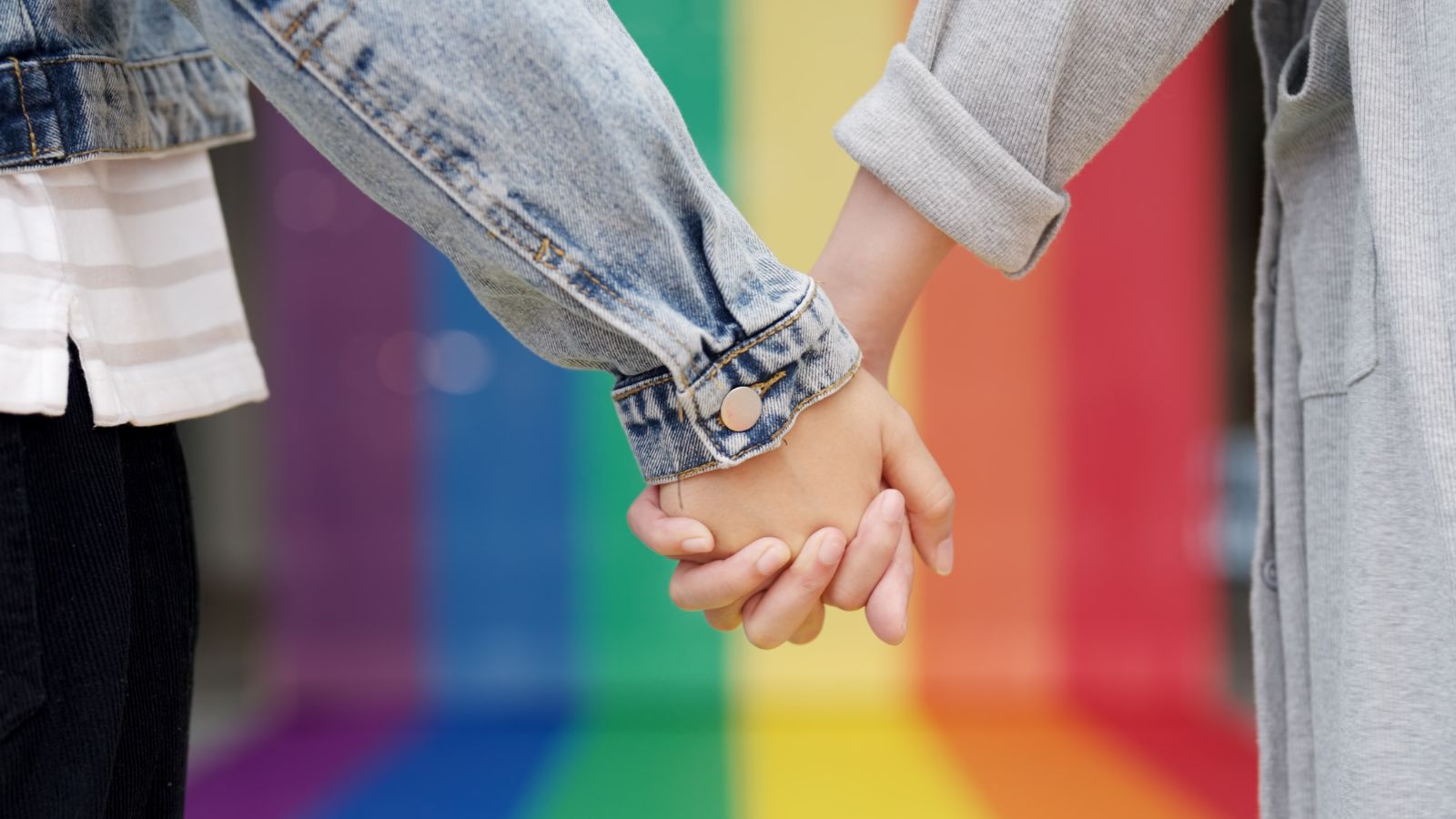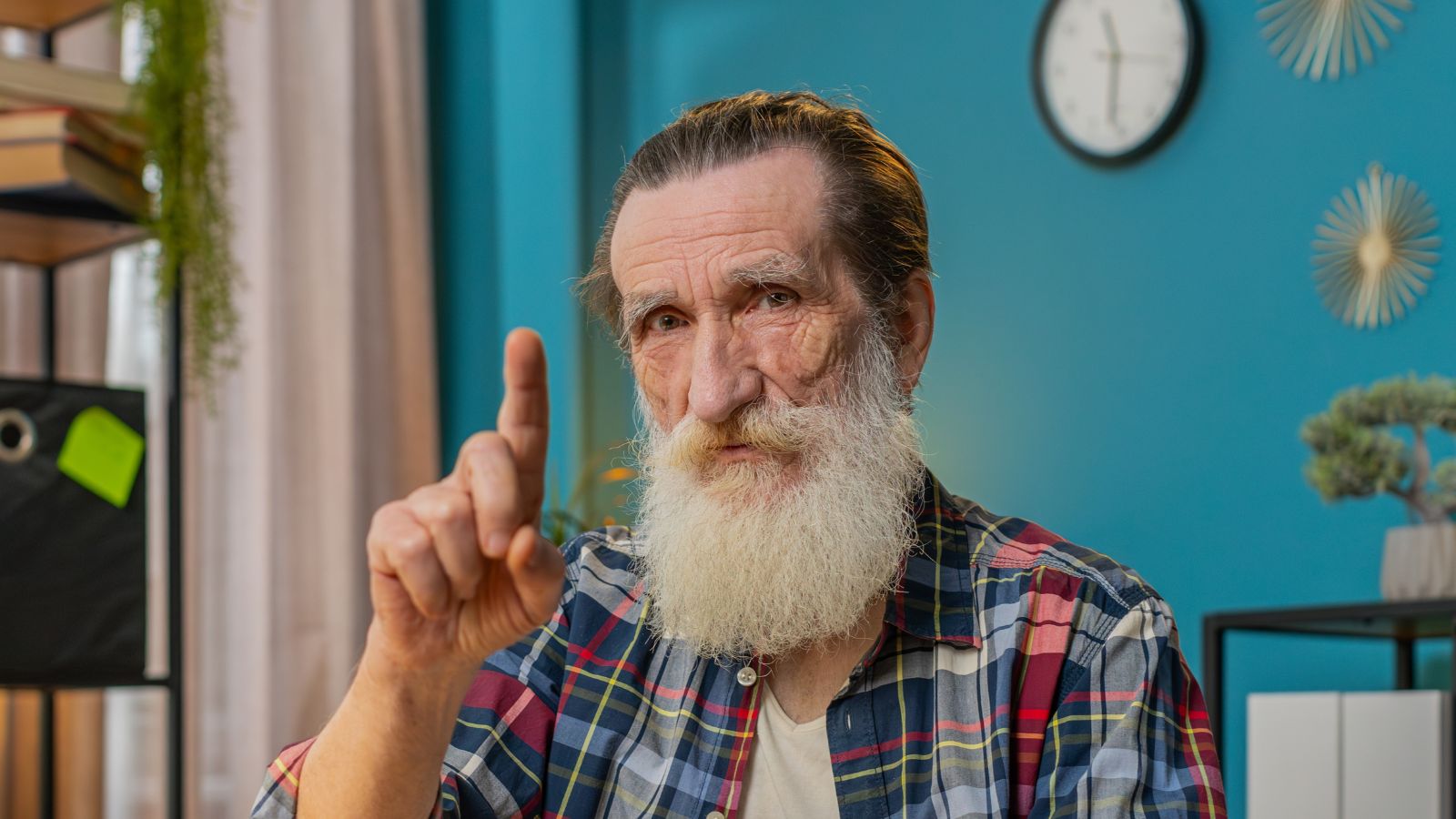Back in the old days, everyone could live freely without having to worry about “offending” people. Sure, we didn’t swear as much back then, but we could speak our minds openly without too much trouble. However, these days, we all know that this couldn’t be further from the case. To show you what we mean, here’s a list of modern social norms that we oldies just can’t get on board with.
Gender-Neutral Language

In recent years, gender-neutral language has become more common in efforts to be inclusive, but as KQED points out, it can be confusing or even controversial for those used to traditional terms. Older generations often struggle to adapt to pronouns like “they/them” for individuals. We’d be quite happy to accommodate everyone, but how are we supposed to read their minds?
Cancel Culture

Another part of “woke” society that drives older people crazy is cancel culture, where individuals or companies are publicly called out and boycotted for perceived wrongdoings. It’s a hot topic these days, but many older people find this practice harsh or unfair, believing in second chances and personal growth. The idea of being “canceled” for past mistakes is hard for them to accept as productive.
Social Media Activism

We old folk grew up with real-life activism, so today’s social media activism, or “hashtag activism,” can seem superficial to us. Sharing posts or changing profile pictures doesn’t feel like real action; we value tangible efforts far more, such as volunteering or donating, over online displays of support.
Redefining Family Structures

The concept of family has expanded beyond the traditional nuclear family model, embracing a wider range of relationships and structures. Therefore, older generations may find it difficult to understand or accept newer ideas about what constitutes a family. Shifts towards non-traditional arrangements, like co-parenting or polyamorous families, can feel unfamiliar and sometimes even unsettling.
Rejecting Traditional Gender Roles

The younger generation of today is rejecting traditional gender roles, and admittedly, we older people struggle with this as we grew up with defined roles for men and women. Seeing gender as fluid or encouraging boys and girls to engage in the same activities clashes with the way we were raised, but we suppose it’s just how things are going.
Pronoun Visibility

We briefly mentioned today’s obsession with pronouns earlier, and it grinds our gears even more when people add their pronouns to email signatures or social media profiles. We’d understand it if someone had an unconventional pronoun or changed their gender, but we really don’t need to know that Dave from the office refers to himself as “He/Him.”
Challenging Historical Narratives

Re-examining historical figures and events through a modern lens is a trend that doesn’t sit well with everyone. Many older people grew up learning specific narratives about history that are now being questioned, making the push to rename buildings or remove statues feel like an erasure of their heritage.
Body Positivity and Acceptance

In our “woke” society, body positivity and acceptance movements promote self-love of all sizes, challenging traditional beauty standards. This shift can be difficult for older generations, who were raised with different ideals about appearance and health. The idea that every body type should be celebrated is a significant departure from the norms they knew–we’re quite happy with it, but as long as everyone is healthy.
Environmental Activism

While many support environmental protection, the urgency and methods of today’s activism can be overwhelming. Older generations find the demands for drastic lifestyle changes, like reducing meat consumption or eliminating single-use plastics, to be extreme. They may support the cause but struggle with the extent of the required adjustments, which can often seem sensationalist and overly dramatic.
Re-defining Success

Back in our day, success was all about working hard, earning a good salary, and working your way up the employment ladder. However, that’s almost frowned upon now, with success being redefined by younger generations to include work-life balance, passion projects, and mental well-being.
Language Sensitivity

Nowadays, the younger generation actively avoids terms that could be seen as offensive, which we oldies just don’t get because they swear so much! Meanwhile, we’ll use perfectly innocent and clean phrases, but they will suddenly decide they’re outdated or harmful. We’re all for inclusivity, but frankly, it’s just too hard to keep up with all these changes.
Expanding Definitions of Sexuality

To make pronouns even more confusing, “woke” society has expanded definitions of sexuality, including pansexual, asexual, and others. Many older individuals grew up with limited understanding or discussion of sexual diversity, so accepting and understanding the broader spectrum of sexual orientations requires unlearning and relearning concepts that were once very straightforward. I
Mental Health Awareness

The increased focus on mental health awareness and the importance of self-care is relatively new, and while we can agree that it’s a good thing, it’s still tough to deal with. We older generations grew up in environments where mental health wasn’t discussed openly, and therefore, seeking therapy or talking about mental health issues might seem unnecessary or indulgent, as we were always raised to keep personal struggles private.
The Concept of Privilege

Us boomers can’t stand it when young people throw around the word “privilege.” Discussions about privilege, including white, male, or socioeconomic privilege, are now common, which can be uncomfortable for us as we feel like our hard work is being overlooked. We won’t deny that certain privileges exist, but that doesn’t mean that we should scold ourselves for having them.
Changing Norms Around Work

The workplace landscape has changed dramatically in recent years; remote working, flexible hours, and “woke” office culture all reflect new values that boomer workers struggle to keep up with. We’ve spent decades in traditional office settings with strict hours and normal values, making these shifts feel jarring.
Challenging Consumerism

A growing movement challenges consumerism, promoting minimalism and sustainability over accumulation. Older generations, who often equate success with material wealth, may find it strange to see younger people rejecting traditional symbols of success, like owning a car or a large wardrobe. It’s a mindset shift that doesn’t always resonate, but we suppose that’s just how times change.
The Rise of Veganism

Another expectation of “woke” society that older people struggle to embrace is the rise of veganism and plant-based diets. Boomers grew up with meat as a staple of every meal, so it’s understandable that they struggle to understand the environmental and ethical arguments behind this change. Most follow the idea that we’re happy for anyone to eat whatever they want as long as they don’t expect us to follow suit.
Emphasis on Diversity and Inclusion

An emphasis on diversity and inclusion is prevalent in hiring, media, and education today. While these efforts are widely supported, some older individuals may feel it’s too politically correct or tokenistic. Ultimately, hirers and companies should choose the best people for the job, not the person who makes them look the most “woke.”
Redefining Patriotism

Any older Brit will have noticed how patriotism is being redefined in the UK, especially when it comes to criticizing national history, colonialism, and policies. Many were raised to express pride in their country without questioning its past, whereas younger generations often see critical engagement as a deeper form of patriotism, which can be a difficult concept for some to embrace.
The Expectation of Instant Gratitude

Finally, younger generations are often perceived as expecting immediate recognition and gratitude for their efforts, whether in the workplace or in personal interactions. That just isn’t how the real world works; we older people value patience and a “pay your dues” mentality, making this expectation of instant validation feel challenging. The youth of today just need to be more patient, and then, they’ll get to reap the rewards.

